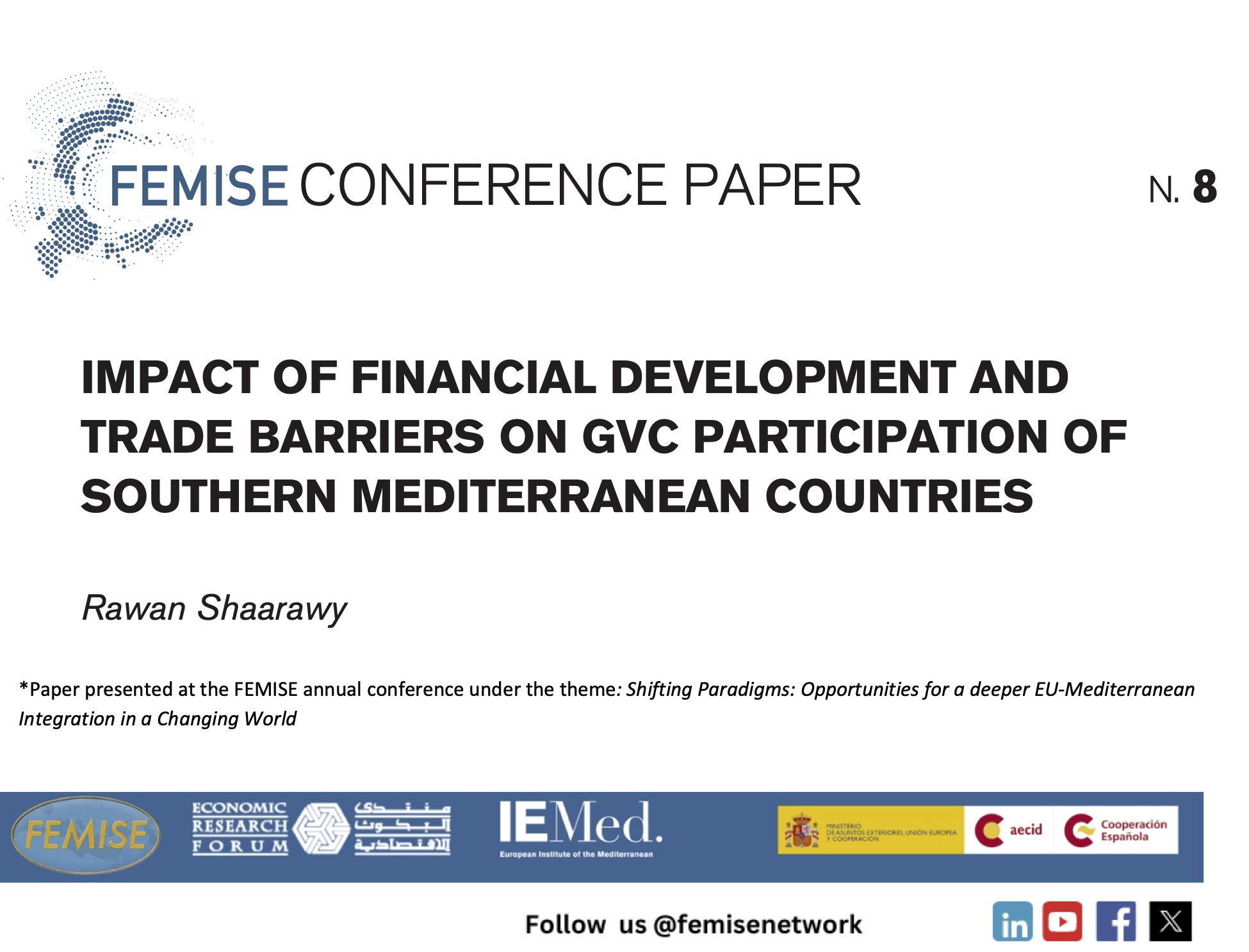Summary :

Abstract
This paper studies the effects of financial development and trade barriers in a country on its level of participation in a Global Value Chain (GVC) with a focus on the Euro Mediterranean (EU-Med) region during the period between 2000 and 2018. To explore this relationship, the paper focuses on the financial development in terms of the ease of provision of sources of finance such as access to credit to private sector, in addition to tariff and Regulatory trade barriers as important factors affecting countries’ integration in GVCs. This paper empirically links two literature strands; the first one tackling the effect of facilitating access to credit and sources of finance on GVC participation and the second one analyzing the effect of trade barriers on GVC participation, in addition to examining the effect of their interaction on GVC participation in the EU-Med region. In order to examine this relationship, extended regression model (ERM) is used. The results of this paper show that countries developed financially are more likely to increase their engagement in GVCs, and that countries who impose high trade barriers tend to have lower participation rate in GVCs. The interaction results show that the negative effect of trade barriers outweighs the positive effect of financial development on GVC participation, and that financial development attenuates the negative effect of trade barriers on GVC participation, particularly with respect to forward linkages. From a policy perspective, countries may stimulate their participation in GVCs by reducing trade barriers and insuring financial development by facilitating businesses’ access to different sources of credit. Further, they must reduce the financial burden on businesses by exempting the nascent and most innovative businesses from taxes for a certain number of years in order to encourage the businesses to export and to participate in GVCs.
Jel classification: F10, F38, G15, G19
Keywords: GVC participation, financial development, tariffs, regulatory trade barriers

